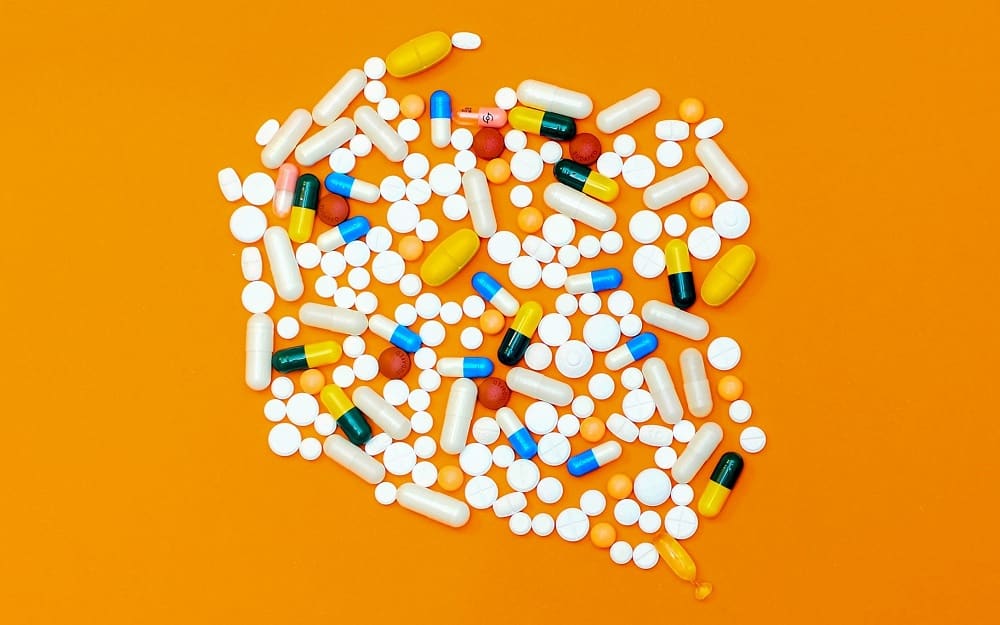India has set a massive effort to reduce its reliance on China for crucial raw materials as part of its drive to become the world’s “pharmacy.” India, which is already the world’s third-largest producer of drugs by quantity, has one of the world’s cheapest production costs. In the United States, one out of every three pills ingested is manufactured in India. Similarly, one out of every four medicines consumed in the United Kingdom is manufactured in India.
India’s $42 billion pharmaceutical industry, on the other hand, is significantly reliant on China for crucial active pharmaceutical ingredients, or APIs, which are the molecules that give medications their therapeutic effect. As per a government estimate, India imports roughly 68% of its APIs from China since making them domestically is more expensive.
According to the Trade Promotion Council, a government-funded body, API dependence on China is estimated to be at 85%. While India’s API imports from China are about 70%, its reliance on China for “particular life-saving antibiotics” is around 90%, according to another independent report published in 2021. Penicillin, cephalosporins, and azithromycin are among the medications that rely heavily on Chinese APIs, according to the report. This appears to be beginning to alter.
In March, 35 APIs were manufactured at 32 sites across India under a government programme that began two years ago. According to an estimate by ratings company ICRA Limited, the Indian subsidiary of Moody’s, this will cut reliance on China by up to 35% by the end of the decade.
When military hostilities with China were at an all-time high, the production-linked incentive programme was first introduced in mid-2020. The PLI programme aims to encourage enterprises from all sectors to invest $520 billion in domestic manufacturing by 2025.
The government has set aside nearly $2 billion in subsidies for both private Indian enterprises and foreign players to begin producing 53 APIs for which India is primarily reliant on China. The initiative involves some of India’s largest pharmaceutical corporations. Aurobindo Pharma, Dr. Reddy’s Laboratories, Sun Pharmaceutical Industries, Lupin, and Cipla are among the companies.
According to Deepak Jotwani, ICRA Limited’s assistant vice president, a total of 34 goods were authorised in the first phase of the plan and divided among 49 players. By 2029, the first stage will result in a 25–35% reduction in Chinese imports, Jotwani said.
The involvement of India in the pandemic
By 2024, the government intends to increase the pharmaceutical sector’s worth from $42 billion to $65 billion. Its goal is to increase that amount by 2030, to between $120 and $130 billion.
In addition, India has also risen as a major player in the global fight against the pandemic.
As of May 9, India had distributed over 201 million doses to over 100 nations in Southeast Asia, South America, Europe, Africa, and the Middle East, as per the government data. India has been exporting vaccinations through both government-funded and private-sector projects, as well as through the Covax platform.
When local cases spiked and the country needed additional vaccines at home, the country had to temporarily halt exports in April 2021. In October of that year, it resumed shipments.
According to the Indian government, Indian pharmaceutical companies supply nearly 80% of the antiretroviral medications used worldwide to combat AIDS.
India was not previously so reliant on China for its pharmaceutical ingredients.
According to the PWC consultancy group, India imported just 1% of its APIs from China in 1991. That changed in the 1990s, when China built infrastructure such as wastewater treatment plants, subsidised power, and water to support API manufacture across its 7,000 pharma parks. China’s production costs have plummeted, forcing Indian businesses out of the API market.
The road to self-sufficiency is long
Amitendu Palit, senior research fellow at the National University of Singapore’s Institute of South Asian Studies, said that indigenous manufacturing will take a long time to meet the needs of India’s pharmaceutical companies.
Until then, India will have to rely heavily on Chinese APIs. Import dependency must be reduced in order to reduce disruptions in India’s pharma supply chain, Palit said.
Founder of Mumbai-based Somerset Indus Capital Partners, Mayur Sirdesai, which manages a health-care private equity fund, believes the production-linked reward program’s focus might be narrowed.
They will probably do better with low volume, specialised APIs than with high-volume APIs, he added, noting that many additional metabolic pathways in the manufacturing cycle would have to be relocated to India in the long term to save money.
The decision to lessen reliance on China was motivated by geopolitical reasons, according to Pavan Choudary, who is the chairman and secretary general, Medical Technology Association of India, a non-profit organisation.
Blind outsourcing is now becoming friendshoring, Choudary explained, noting that friendshoring refers to the outsourcing of commercial activities to nations with comparable political systems and a peace heritage.
He also reflected on recent efforts by several countries to shift supply chains away from China. Apart from APIs, Choudary, an important voice in the pharmaceutical sector, estimates that India imports $1.5 billion in medical equipment from China, including imaging technology and machinery for doing magnetic resonance imaging and other sorts of advanced scans. He predicted that reducing reliance on China for hospital devices would take longer than lowering reliance on APIs.
APIs are dependent on a chemical environment that already exists in India, stressing that medical devices are more technologically complicated. Cutting this dependence will take a little longer, he concluded.























